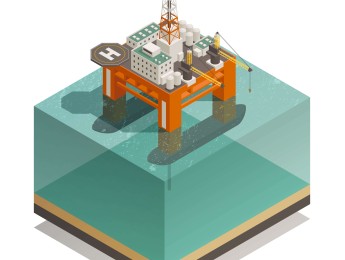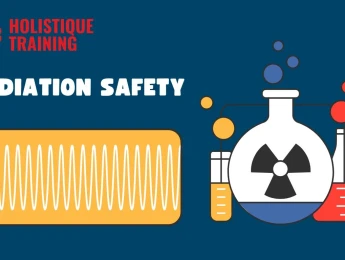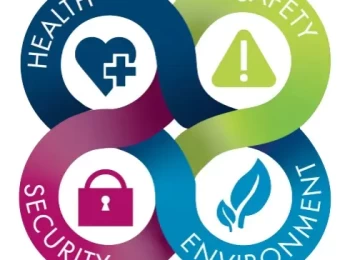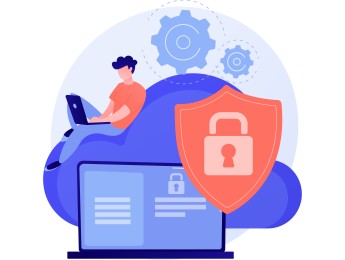In the oil and gas industry, medical facilities, laboratories, and manufacturing companies understanding and maintaining health and safety processes and procedures regarding ionising and non-ionising radiation materials is essential. This can help employees stay safe and productive in the workplace and also contribute to environmental factors.
To run a business successfully with radiation materials, you’ll need to consider proper safety clothing, equipment and disposal procedures. You’ll also need to think about risks, contingency planning, and a place to store dangerous substances and items when not in use.
To ensure a failsafe way of working with harmful materials, you will need to consider every part of your process roadmap, from administration and procurement to meeting the needs of your regulatory body and safe disposal.
Upon completion of this course, participants will be able to:
- Understand the different properties of ionising and non-ionising radiation.
- Handle materials affected by radiation.
- Develop key processes and procedures to keep your employees safe around dangerous materials.
- Conduct risk assessments and make changes to avoid and reduce risks.
- Understand the potential biological effects of radiation exposure.
- Find safe storage areas for radioactive materials.
- Act in the correct way in the event of an emergency.
- Assess proper safety equipment to ensure each task is conducted correctly.
- Develop sound contingency plans to keep your business viable if an issue does occur.
- Manage and develop employees around your key goals to guarantee safety and security at all times.
This course was designed for anyone working in an environment that regularly deals with radioactive materials and anyone designed to create a process map to understand the risks in these areas. It would be most beneficial for:
- RPOs (Radiation Protection Officers).
- HazMat Managers
- HSE Managers
- Radiologists
- Laboratory Personnel
- Procurement Managers in Radioactive Materials
- Engineers
- Supply Chain Managers
- Transportation Personnel
This course uses various adult learning methods to aid understanding and comprehension. Participants will watch presentations and videos based on what happens during a radiation incident and participate in practical discussions to uncover risk areas. Demonstrations and role-playing practical activities will also help participants understand the correct procedures during an incident and how to mitigate further risks.
Day 5 of each course is reserved for a Q&A session, which may occur off-site. For 10-day courses, this also applies to day 10
Section 1: Radiation Safety & Your Key Takeaways
- The two types of radiation - ionising and non-ionising.
- The basics of ionising radiation processes.
- Radioactivity protection principles (ALARA).
- IAEA safety guidelines and standards.
Section 2: How Radiation Could Affect You
- The biological effects of radiation.
- How to identify radiation sources.
- Dose and unit concentrations on the human body.
- How to categorise radiation effects.
- Acute and delayed exposure symptoms.
- Acceptable levels of radiation.
Section 3: Developing Foolproof Risk Assessments
- Proper equipment and safety features.
- Dosimeter and Dose-meter measurement applications.
- Radiation exposure assessments.
- The AIEA standards of CoP.
- Understanding the risks of radiation and how problems can develop.
- Man-made radioactive materials.
Section 4: Creating Sound Control Procedures
- Your operational roadmap and protection programme.
- Developing ERP in handling radiation.
- Regulation and safety controls.
- Understanding exposure pathways and how they develop.
- Short and long-term effects of exposure on people and environments.
Section 5: Radiation Management
- Radiation measurement and monitoring procedures.
- Developing an analysis structure.
- How to manage radioactive waste.
- Classifying your workstations.
- Estimating your impacts.
- Your radiation management structure.
Section 6: Radioactive Disposal
- The safe transportation of radioactive materials.
- Security of radioactive materials in storage.
- Solution-focused planning.
- Monitoring time, distance and shielding for safe transportation.
- Laboratory control procedures.
Section 7: Contingency Planning & Emergency Situations
- Planning for an emergency.
- Handling radiation in an emergency.
- Containing the dangerous area.
- Limiting exposure where possible.
- Formulating your emergency response plan.
- Safe procurement and purchase of materials.
Section 8: The Regulations Against Your Obligations
- FANR Regulations
- The role of RPO and your employees.
- DOT, UN, IAEA and IATA regulations.
- Your legal obligations to your employees.
- Health and safety training and review.
- Creating a safe and structured operation.
- Analysing your risk assessment procedure regularly.
Upon successful completion of this training course, delegates will be awarded a Holistique Training Certificate of Completion. For those who attend and complete the online training course, a Holistique Training e-Certificate will be provided.
Holistique Training Certificates are accredited by the British Assessment Council (BAC) and The CPD Certification Service (CPD), and are certified under ISO 9001, ISO 21001, and ISO 29993 standards.
CPD credits for this course are granted by our Certificates and will be reflected on the Holistique Training Certificate of Completion. In accordance with the standards of The CPD Certification Service, one CPD credit is awarded per hour of course attendance. A maximum of 50 CPD credits can be claimed for any single course we currently offer.
- Course Code PO2-105
- Course Format Classroom, Online,
- Duration 5 days














